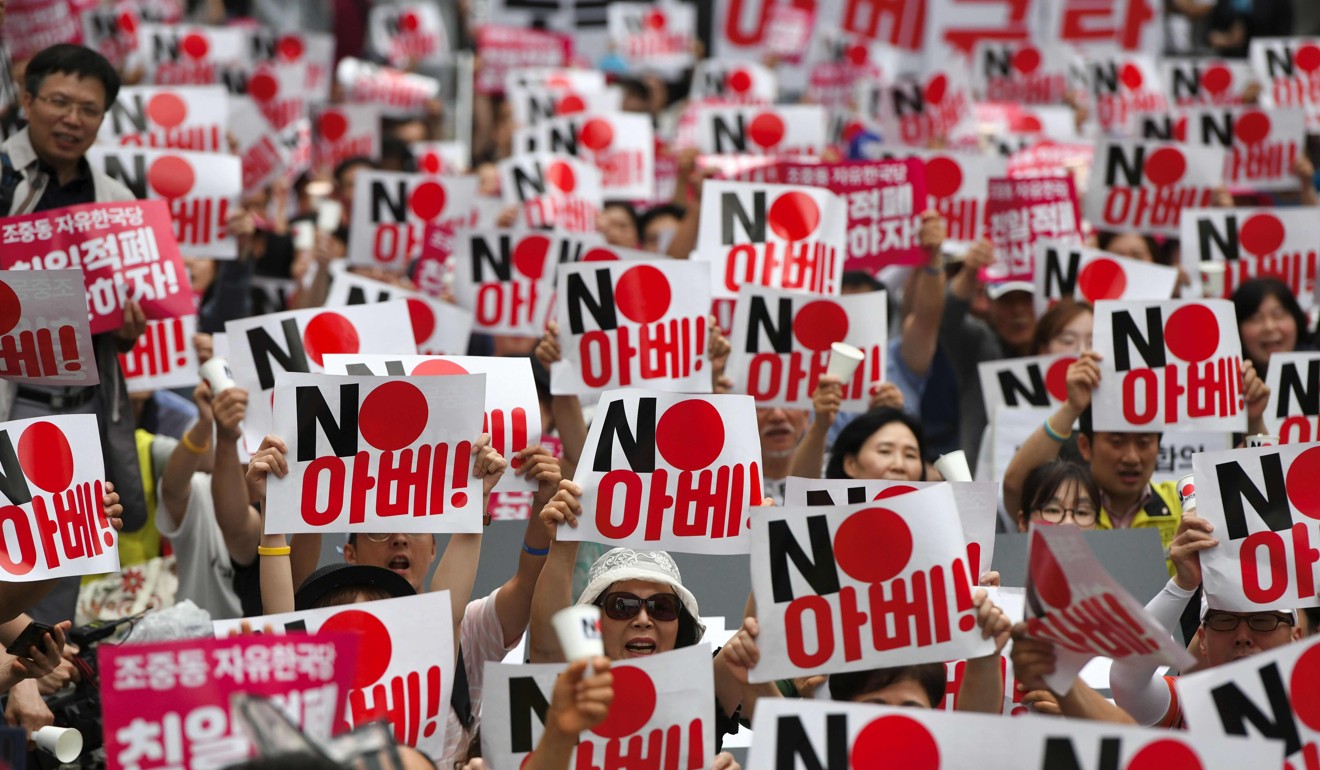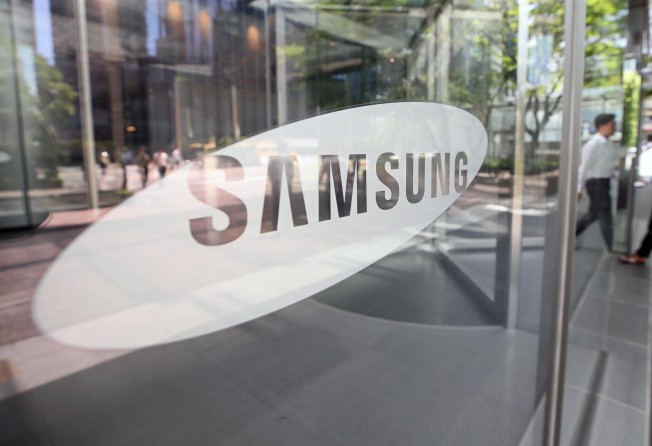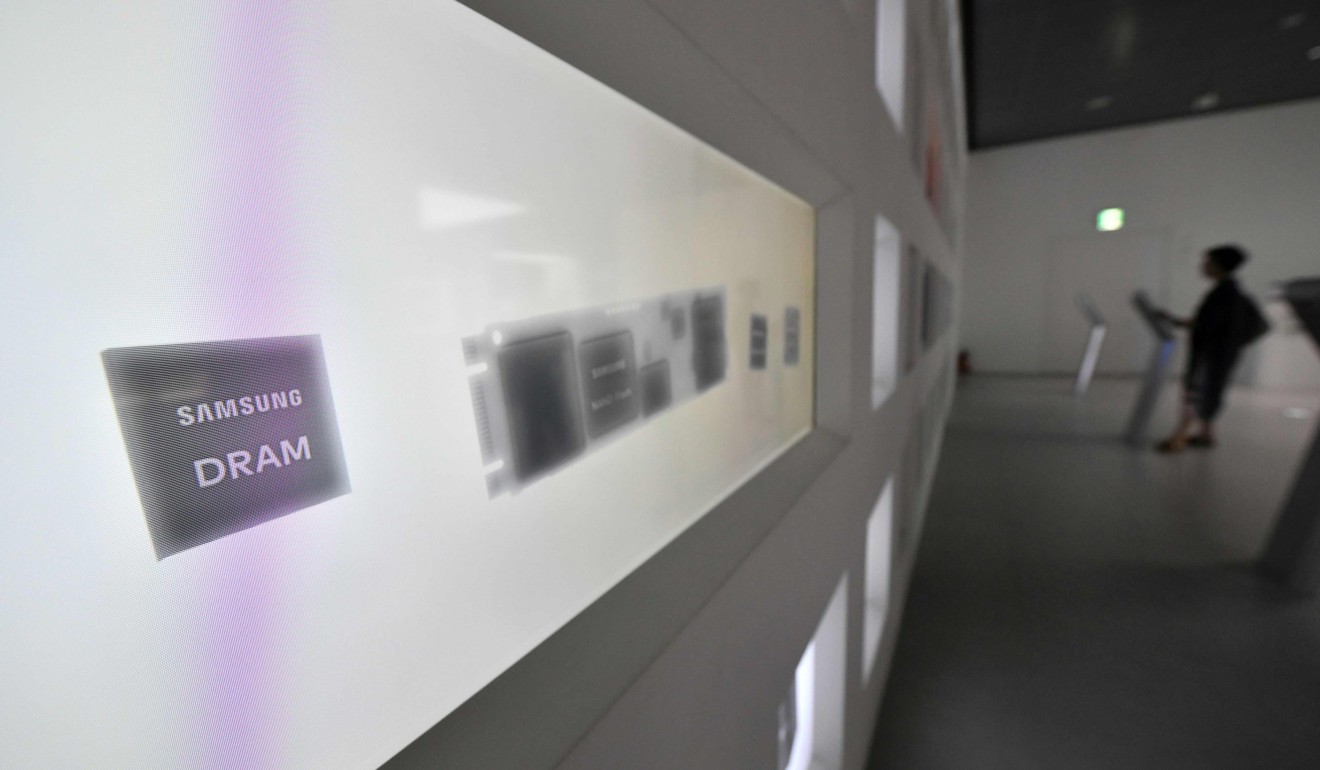
South Korea’s Samsung scrambles to find replacements for Japanese suppliers as trade row rumbles on
- Two of the materials targeted by Tokyo’s curbs are essential to making memory chips. A third is used in hi-tech TV screens and smartphone displays
- Analysts disagree on how long it would take South Korea to develop domestic production. Estimates range from a few months to more than 10 years

South Korean tech giant Samsung Electronics, the world’s biggest smartphone and memory chip maker, is seeking alternatives to Japanese suppliers for some key materials, it said on Wednesday.
Seoul and Tokyo are embroiled in a bitter trade dispute, stemming from the Japanese government’s decision last month to impose restrictions on chemical exports crucial to chipmaking. Last week, Seoul and Tokyo removed each other from their “white lists” of trusted trading partners.
Two of the materials targeted by Japan’s curbs, hydrogen fluoride gas and photoresists, are essential to making memory chips, while a third, fluorinated polyamide, is used for hi-tech TV screens and smartphone displays, including hotly anticipated folding models from Samsung.
Tokyo’s move has also raised international concern about the effect on global supply chains and possible price increases for consumers worldwide.
“It’s true that we have been searching for ways to diversify the sources for materials and parts [following Japan’s export restrictions],” a Samsung spokeswoman said.

However, she denied a South Korean media report that the firm had decided to replace all the 220 or so Japanese chemicals and materials it uses for chip production with Korean or overseas products.
“It’s unrealistic to replace suppliers for all the materials and chemicals,” she said.
Samsung is by far the biggest of the family-controlled conglomerates that dominate business in the world’s 11th largest economy, and it is crucial to South Korea’s economic health.
Analysts have warned the restrictions – and a reduction in the availability of the materials – would “significantly impede” chip producers.
Japan holds a 60-70 per cent share of the global hydrogen fluoride market, according to Taipei-based market intelligence firm TrendForce, which could make it difficult for Korean companies to find alternatives elsewhere.
According to MBC TV, eight out of 10 South Korean companies it surveyed said materials and parts needed for semiconductors would be able to be produced locally in four years.
Hydrogen fluoride gas, for example, should be available locally by February next year, according to Park Jae-geun, an expert on semiconductors and displays.
“Then, Japanese suppliers would suffer great damage in sales and could go belly up in the worse case scenario,” Park said.

Yoo Sang-im, Seoul National University professor and expert in electronic materials, was less sanguine, insisting: “It would take at least 10 years, I am afraid.”
Japan and Germany, the two powerhouses in chemicals and materials, have been carefully pooling resources to cultivate these industries for many decades.
“South Korea has no systems to compete in those sectors,” Yoo said. “And the environment is too harsh for local suppliers to grow as rivals for Japanese and German companies.”